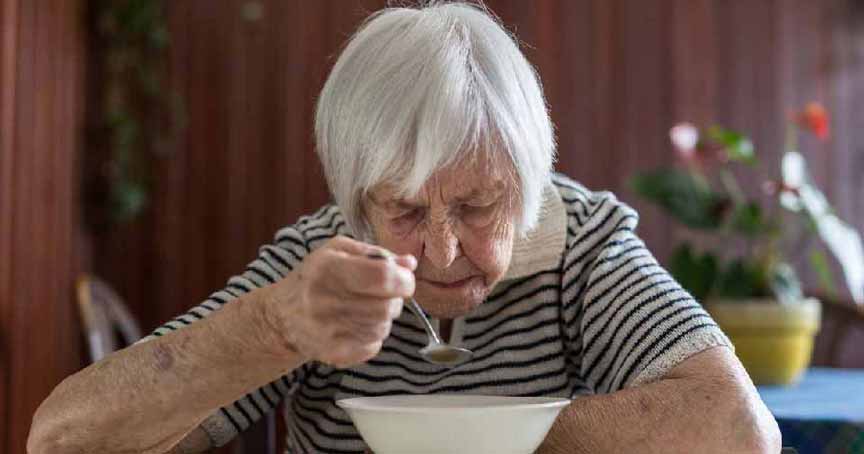There are certain activities we all complete daily. Whether it's brushing teeth, showering, or getting dressed, we all perform these tasks without a second thought. However, whether it's from old age or a medical condition, we may have difficulty handling these common activities. While this is normal in the aging process, seniors can still have difficulty adjusting to this new reality.
The tasks listed above are referred to as ADLs, or activities of daily living. In this post, we’ll discuss ADLs by explaining what they are, how they impact independence, and how to help someone struggling.
What Are ADLs?
ADLs is short for activities of daily living. These involve the basic activities needed for survival, such as eating, drinking, and using the bathroom. However, ADLs may become a little more challenging when people get older or experience an injury or chronic condition.
Here is more information on six common ADLs:
Dressing
This includes everything from putting on your t-shirt to throwing on your shoes. If you have an injury, mental health condition, or a severe illness, you may need help with these common tasks.
Eating
Eating includes the essential activities of cutting up food and putting it in your mouth. Those experiencing severe arthritis or a hand injury may need assistance with these tasks.
Toileting
Toileting involves everything from sitting on the toilet to using the restroom properly. Many people just need help sitting down and getting up.
Bathing
Bathing ADLs involve entering the bath or shower and using it as intended. Those struggling may need help cleaning themselves and entering/exiting these areas, as they can be dangerous.
Grooming
This involves keeping up with personal hygiene, such as shaving, trimming nails, and maintaining one's appearance.
Mobility
Mobility ADLs include standing up, sitting down, walking independently, and getting in and out of bed.
ADLs vs. IADLs
ADLs are sometimes confused with IADLs, instrumental daily living activities. These tasks are still important in everyday life but aren’t required for survival. IADLs include activities such as:
- Talking on the phone
- Using a computer
- Driving or arranging rides
- Cooking and meal planning
- Cleaning around the house
- Doing laundry, washing dishes, etc.
- Managing medications
- Handling personal finances
While it’s usually easy to tell when someone needs assistance with ADLs, that isn’t always the case with instrumental activities of daily living. For instance, you may not know your loved one struggles with managing money. This is why checking in with your loved ones is essential to see where you can help.
What Impacts ADLs?
Several different conditions can affect ADLs. In fact, it can be as simple as a sprained ankle. Here are some of the common conditions that can impact activities of daily living:
- Broken bones
- Dementia
- Arthritis
- Chronic pain
- Acute injuries
- Mental health conditions
When someone struggles with these health concerns, they may feel more dependent on others. This can lower self-esteem, cause depression, and lead to other health problems. That said, it’s important to help your loved ones through this difficult time and support them as best you can.
ADLs and Independence
Maintaining independence is a goal we all share. However, when we reach a certain age or experience a particular health condition, our independence can suffer. If you struggle with handling ADLs independently, it’s normal to feel a decrease in your independence. You may need help eating meals, using the restroom, or getting out of bed. As this may be a harsh new reality, just remember it’s not always permanent. Many people who get assistance with ADLs regain much of their independence over time.
Helping Someone with ADLs
This can be a steep mountain to climb if you’re in charge of helping someone with ADLs. However, you can become an exceptional helper and a great support system with a little practice.
Here are some tips to keep in mind:
- Always have empathy
- Never raise your voice
- Maintain a calm demeanor
- Use eye contact when communicating
- Refrain from complex questions
- Give them personal space
- Be aware of your vocal tone and body language
- Offer choices when trying to make decisions
Remember that your loved one may feel depressed or unhappy about their current situation. That said, try to keep things positive. Find ways to lighten the mood and focus on keeping them comfortable.
Assisted Living Can Help
ADLs are essential in everyday life. Finding assistance is vital if you or someone you know struggles with these tasks.
If you cannot schedule at-home care, consider an assisted living community. These facilities offer professional, around-the-clock care solutions, helping to keep your loved one safe and healthy.





